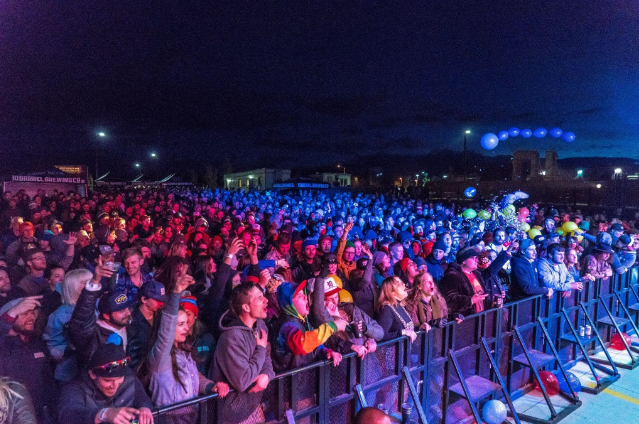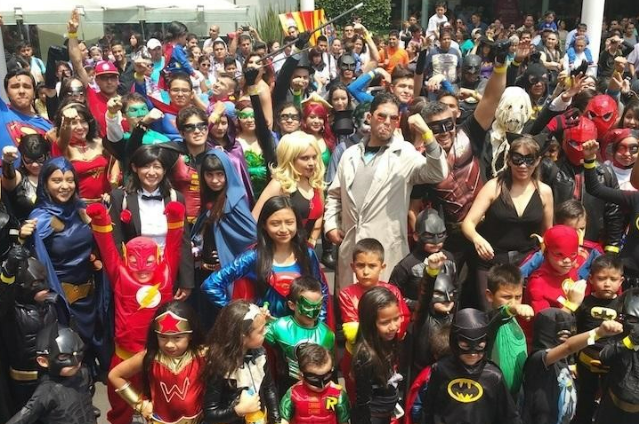Every artist has a fan base who continuously supports them primarily by streaming their music, watching their movies or games, and appreciating their art. They are the reason for the success of so many artists all around the world. This support is now known as “stanning” where the fans address themselves as “stans”. Fan culture started from “Beatlemania” and went through several stages. The mania of fans for the band was so much that they stopped their live performances altogether. This mania, though never ceased. It went from “Beliebers” to “Swifties” to “Directioners” moving forward to the current and probably the biggest, “BTS Army”.
These fans gather around the arenas or studios, holding posters, pictures, banners, and screaming, crying, shouting to get their favorite artists' attention. The media calls it “frenzy”, a frenzy that leads to houseful theatres, sold-out stadiums, and millions of money. Although, the whole world listens to their music, the biggest supporters or “stans” consist of women, primarily teenage girls.

Young female fans have shaped the way we see and perceive stan culture in the popular entertainment industry. Playing a major role in starting twitter trends shows the extent of the capabilities of these teenage girls in pop culture, yet they are shamed and are considered "hysterical" by the media. For instance, the article by Paul Johnson where he described these fans as “Those who flock round the Beatles, who scream themselves into hysteria, whose vacant faces flicker over the TV screen, are the least fortunate of their generation, the dull, the idle, the failures.”
They are hysterical when they scream and cry during concerts because they are so overwhelmed to see their favorite artists perform. When they put up posters of their favorites on their room's walls, they are hysterical. When they wear the merchandise of their favorite artists or talk about them passionately like it's the most interesting thing on the planet, they are hysterical. One might argue that it is, in fact, insanity to love any celebrity to this extent, but have you ever wondered who else participates in all of the above things and not get called hysterical at all? Men.
Our good old society adorns men with the term "passionate" when they act irrational and beyond hysterical. They break television sets when their favorite team loses a match. They run inside the cricket field to hug their favorite players and attack them if they lose. The way there is a near curfew all over India when there is an India vs Pakistan cricket match tells a lot. Recent examples are the Euro cup 2020, which showed that these men can even dance naked in the streets, shout racial slurs to the players, or can go as far as sending death threats to the players when they lose with a mere justification of being "passionate" about the sport.
If men are not “passionate” for some reason, then they are "geeky" or "nerdy". They obsess over comic book characters and spend thousands of dollars on buying Marvel or DC merchandise. They shout and scream at the cinema halls, watching a new Avengers movie, or even when they dress up like Spiderman, covered in full spandex while going to watch the new Spiderman movies. Yet no one dares to call them “crazy” and “obsessive”, and “psychotic”
Not to forget how these “geeks” manage to undermine female fans in this category as well. The fact that females who stan these movies and characters are just swept under the rug, going as far as calling them “fake fans”. As a cricket fan myself, I used to get these sexist comments most of the time. If I told a guy I am a massive cricket fan, he immediately starts asking me random questions about it just to prove that I am, in fact into cricket because of the handsome cricketers and not the game because how can I be? It is a “gentleMAN’s game” after all, not “gentleWOMAN’s”.
The most significant thing in how we, as a society, see both types of fans is- deep-rooted sexism.
When a girl puts up a poster of Shahrukh Khan in her room, she is somehow “crazy” or “obsessed” but if a boy puts up a poster of Virat Kohli, that is, somehow, very normal. When a girl starts crying upon meeting her favorite celebrity, she is overreacting. However, if a boy trespasses the security and barges into the cricket field while the match is still going on just to touch their favorite cricketer’s feet, it is very normal.
According to research, domestic violence increases by 70% in England whenever their national team loses a football match. So, are we absolutely sure that this is just "passion"? Because when you actually look into it, it seems more like pure and blatant misogyny.
The artists, actors, and bands that have a fanbase of fairly young women, tend to be named “heartthrobs” or “sensations” by the media. Hence, are not only discredited for all their talent and hard work by only focusing on how sexually attractive they are but also pushing forward the narrative of them being liked by girls and women because of their looks.
This narrative of being liked by female fans only because these men are sexually attractive is not only entirely incorrect but also invalidates the complete existence of queer women who might or might not be sexually attracted to men. We, as women, do not particularly like these popular celebrities because we want to date them but because we genuinely like their music, these celebrities provide a safe space for us to be whatever we want, express ourselves however we want, and meet people with the same mindsets, make friends who understand us better than anyone else.

It's high time the media credit these fans for what they bring to the table for popular culture, fan/ stan culture, and the entertainment industry, whether it's the Harry Potter series, Twilight series, or Marvel movies. Whether it's Taylor Swift since 2003, or current rising pop star, Olivia Rodrigo, female fans play a huge role in building and destroying (remember how BTS fans sabotaged a Trump rally) the careers of these celebrities and the maintenance of their relevance in the popular entertainment industry and it's high time that the society and media stop discrediting them for the same, calling them juvenile and embarrassing or shaming them for being passionate about something all the while praising men for doing just the same.

